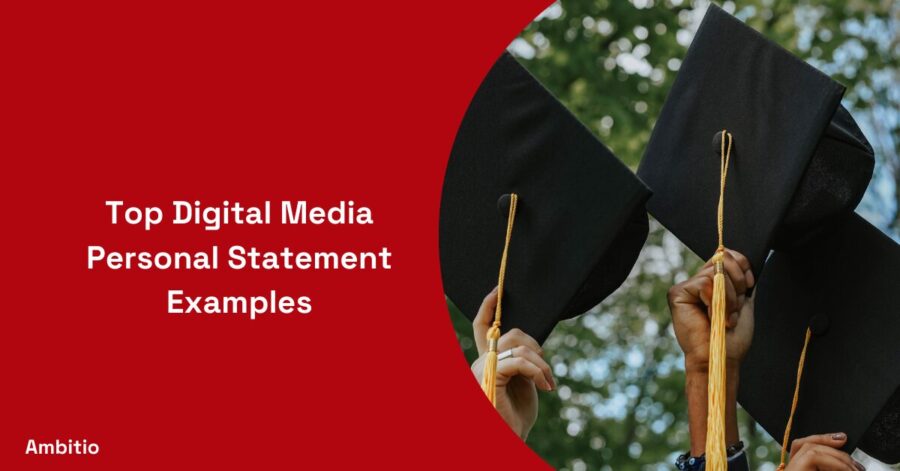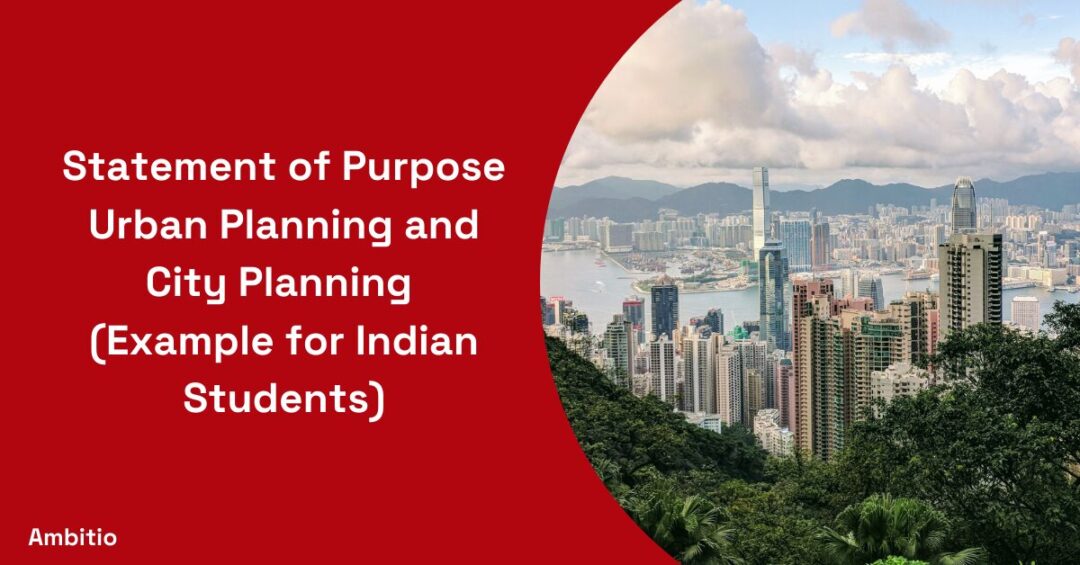10 December 2024
6 minutes read
Digital Media Personal Statement Examples: Crafting Your Communication and Media Journey

Introduction to Digital Media Personal Statements
Creating a compelling personal statement for digital media and communication courses is a pivotal step in your academic journey.
This comprehensive guide will provide insights into crafting a statement that resonates with your passion and aligns with the expectations of universities and colleges.
The Essence of a Personal Statement in Media and Communication
Understanding the Format of a Media Personal Statement
A personal statement in the field of media and communication is your chance to tell a story about who you are, your journey into the world of media, and why you are passionate about this field.
This narrative is not just about your academic achievements but also your personal experiences, skills, and aspirations.
Personal Statement Basics: Incorporating Passion and Professional Aspirations
Your personal statement should begin by expressing your deep interest in the field of media and communication.
Talk about the moment you realized this was your calling – was it while watching a groundbreaking documentary, during a school media project, or while writing for the school newspaper? Use specific examples to illustrate your passion.
Next, delve into the experiences that have prepared you for a degree in this field. Have you participated in media-related extracurricular activities, internships, or projects?
Describe these experiences and how they have shaped your understanding and enthusiasm for media and communication. It’s also important to highlight your communication skills – whether it’s through writing, speaking, or visual storytelling.
Lastly, discuss your professional aspirations. How do you see this course helping you achieve your career goals?
Whether you aspire to be a journalist, a filmmaker, a PR professional, or any other role within the media sphere, make it clear how the course aligns with these aspirations.
Demonstrating Your Understanding of the Media Landscape
To make your personal statement stand out, it’s crucial to showcase your understanding of the current media landscape. This includes awareness of the challenges, trends, and technological advancements in the field.
Exploring Current Trends and Challenges in Media
Begin by discussing the current trends in the media industry. Are you fascinated by the rise of digital journalism, the impact of social media on news dissemination, or the evolution of streaming services in entertainment?
Give examples of how these trends have influenced your decision to pursue a career in media.
Address the challenges facing the media industry today, such as the debate over fake news, the ethical considerations in journalism, or the challenges of content creation in an oversaturated digital world.
Show that you are not only aware of these challenges but also eager to contribute to finding solutions.
Additionally, discuss technological advancements in media. Whether it’s the use of AI in newsrooms, the rise of podcasting, or the impact of virtual reality in storytelling, demonstrate how your interest aligns with these technological shifts.
Personalizing Your Media Journey: Unique Experiences and Perspectives
Every individual has a unique journey into the world of media. In this section, discuss how your personal experiences have shaped your perspective and driven your interest in media and communication.
Sharing Your Unique Media-Related Experiences
Reflect on any unique experiences you have had that are related to media and communication.
This could be an internship at a local newspaper, managing a social media campaign for a community event, producing a short film, or even running a blog or YouTube channel. Explain what these experiences taught you and how they have prepared you for further study in this field.
Discuss any challenges you have faced and overcome in your pursuit of media knowledge. Perhaps you had to balance schoolwork with managing a school radio station, or you had limited resources while creating a documentary.
These experiences show resilience and a commitment to your passion for media. It’s also essential to highlight any unique perspectives you bring to the table.
This could be related to your cultural background, life experiences, or an unusual approach to media that sets you apart. Universities value diversity in thought and experience, so don’t hesitate to share what makes your perspective unique.
The Role of Academic and Extracurricular Activities in Shaping Your Media Aspirations
While your personal statement should focus on your passion and experience in media, it’s also important to discuss how your academic and extracurricular activities have supported your aspirations.
Connecting Academic Achievements and Extracurriculars to Media Goals
Discuss how your academic achievements have prepared you for a degree in media and communication. This could include relevant coursework, research projects, or any academic accolades related to media.
Explain how these achievements have provided you with a foundational understanding of the field. Extracurricular activities can also play a significant role in shaping your media aspirations.
Whether you were part of a school journalism club, a drama society, a debate team, or even a tech club, these experiences can illustrate your interest and skills in communication, storytelling, and media production.
Also, mention any leadership roles you’ve taken in these activities. Leadership experiences can demonstrate your ability to manage projects, work in teams, and communicate effectively – all essential skills in the media industry.
The Importance of Research and Preparation in Writing Your Personal Statement
Writing a compelling personal statement requires thorough research and preparation. This section should guide readers on how to approach the writing process effectively.
Tips for Researching and Preparing a Standout Media Personal Statement
Crafting a standout media personal statement involves thorough research and careful preparation. Here are some key tips to help you create a compelling and effective statement:
- Understand the Course and Institution:
- Research the media and communication courses you are interested in.
- Understand the specific focus areas, course structure, and unique opportunities each institution offers.
- Tailor your statement to reflect how your interests and goals align with the course and institution’s ethos.
- Identify Your Unique Angle:
- Reflect on what makes your journey into media unique – be it your experiences, perspective, or personal challenges.
- Think about how your background, culture, or personal interests have shaped your view of media and communication.
- Gather Relevant Experiences:
- List all relevant experiences, including education, work, internships, projects, and extracurricular activities.
- Include both formal and informal experiences that have contributed to your understanding and passion for media.
- Showcase Your Skills and Achievements:
- Highlight skills that are crucial for a career in media, such as communication, creativity, technical skills, or critical thinking.
- Mention any relevant achievements, awards, or recognition you’ve received.
- Draft a Compelling Narrative:
- Structure your personal statement as a story that reflects your journey, challenges, learning, and aspirations.
- Use a clear, engaging, and authentic tone to connect with your readers.
- Seek Feedback:
- Get feedback from teachers, mentors, or professionals in the media industry.
- Use their insights to refine and strengthen your statement.
- Show Awareness of Current Trends and Challenges:
- Demonstrate your understanding of the current trends, technological advancements, and challenges in the media world.
- Discuss how you plan to contribute to or evolve within this ever-changing industry.
- Reflect on Long-Term Goals:
- Articulate how the course will help you in your long-term career goals.
- Show that you have a clear vision of where you want to go in the field of media and communication.
- Proofread and Revise:
- Carefully proofread your statement multiple times to eliminate any grammatical or spelling errors.
- Ensure that the flow of thoughts is coherent and that your statement makes a strong impact.
- Stay True to Yourself:
- While it’s important to be professional, ensure your personal statement reflects your true self.
- Avoid exaggerating or misrepresenting your experiences and qualifications.
Remember, your personal statement is an opportunity to show the admissions committee who you are beyond grades and test scores. It’s your voice in the application process, so make it count!
Utilizing Digital Media Personal Statement Examples as a Learning Tool
One of the best ways to understand what makes a successful personal statement is to study examples. This section should emphasize the importance of learning from others’ experiences.
Analyzing and Learning from Successful Media Personal Statement Examples
Look for examples of successful digital media personal statements, which can often be found online through university websites, educational forums, or resources like Studential.com.
Analyze what makes these statements effective – notice how they structure their narrative, the way they articulate their passion, and how they connect their experiences to their media aspirations.
Identify the key elements that resonate with you and think about how you can incorporate similar strategies into your statement. However, it’s important to maintain your authenticity and not simply mimic another’s style or experiences.
Reflect on how these examples balance personal anecdotes with professional aspirations. A successful personal statement often strikes a balance between showcasing personality and demonstrating readiness for a career in media and communication.
Conclusion
Crafting a digital media personal statement is about narrating your unique journey and showcasing your passion for the field. Use these guidelines to create a statement that not only meets the academic requirements but also reflects your personal story and aspirations in the media world.
Remember, your personal statement is your chance to make a lasting impression – make it count.
FAQs
Q1: Can I include humor in my digital media personal statement?
While a touch of humor can make your statement more engaging, be cautious. Ensure it’s appropriate and doesn’t distract from the seriousness of your aspirations and experiences.
Q2: How do I balance talking about my achievements without sounding boastful?
Focus on being factual and reflective. Discuss your achievements in the context of what they taught you or how they shaped your interest in media, rather than simply listing accolades.
Q3: Is it important to discuss specific media figures or works that inspire me?
Yes, mentioning media figures or works that inspire you can be a great way to show your engagement with the field. Just make sure to connect it back to your own experiences and aspirations.
Q4: How technical should I get in my personal statement?
It depends on the course you’re applying for. If it’s a technically oriented course, showing your understanding of technical aspects can be beneficial. However, don’t get so technical that it becomes inaccessible to non-specialist readers.
Q5: Should I mention my long-term career goals in the personal statement?
Yes, discussing your long-term career goals can help demonstrate your commitment and vision for your future in the media industry. Just ensure it’s aligned with the course you’re applying for.

You can study at top universities worldwide!
Get expert tips and tricks to get into top universities with a free expert session.
Book Your Free 30-Minute Session Now! Book a call now




























